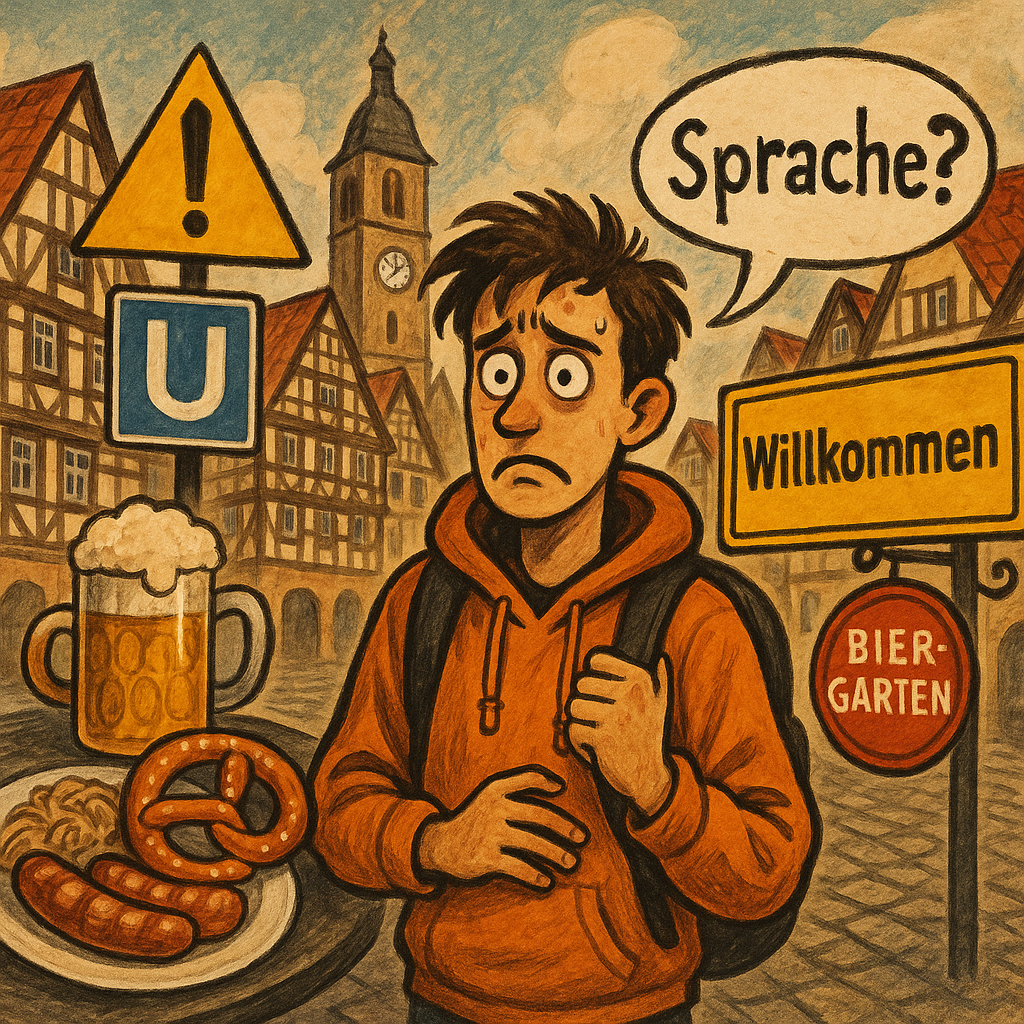Relocating to Germany as an expat is an exciting but challenging experience. The unique aspects of German culture often present unexpected shocks that can leave many feelings puzzled or overwhelmed. German culture shocks for expats vary widely, from communication styles to punctuality, and even to Sunday quiet rules. This guide is designed to help expats understand these cultural differences, adapt quickly, and thrive in their new surroundings.
Communication Style: Direct and Formal
One of the most striking German culture shocks for expats is the famous German communication style. They value honesty and clarity in communication and tend to be very direct in expressing their opinions, needs, and even criticisms. This can be perceived as blunt or even rude by people from cultures that prioritize politeness and subtlety. Coming from such background, a German’s directness can feel like an unwelcome attack or a lack of social grace. For example, a German colleague might bluntly state “Your idea is not good”, without softening their words with courtesy.
- Formal Language: Germans heavily rely on “Sie” (formal “you”) and may use it long after you’ve gotten to know them. Transitioning to “Du” (informal “you”) requires explicit permission.
- Personal Space: Small talk and casual physical closeness are uncommon, and respecting personal boundaries is crucial.
- Humor Style: German humor is often sarcastic, ironic, and rooted in wordplay, which may not translate well for expats unfamiliar with it.
Understanding and adjusting to these communication nuances will help you navigate relationships better in Germany.
Punctuality: The German Obsession
Punctuality in Germany is not just a suggestion; it’s practically a cultural imperative. Being on time is considered a sign of respect, reliability, and professionalism. Being even a few minutes late can be seen as rude and inconsiderate. Adjusting to this rigid structure can be challenging for people from cultures with a more relaxed attitude towards time.
- Meetings: Expect punctual starts and finishes, and avoid arriving even a few minutes late.
- Daily Life: Public transportation runs efficiently, so plan your schedule accordingly.
Being consistently punctual in Germany will help build trust and show respect for German values
Individualism and Independence
German culture places a high value on individual privacy and independence. This can manifest as a focus on individual achievement and responsibility. For people who are coming from a culture that emphasizes close-knit family ties and frequent social gatherings, the German focus on individualism might feel isolating or overly self-reliant.
- Relationships: Building deeper friendships can take time, as Germans often keep their inner circle small.
- Privacy: Sharing personal details with acquaintances is less common.
While Germans may appear cold or reserved initially, expats will often find a warm and welcoming community once deeper relationships are formed.
Rules and Structure: A Society of Order
Germany’s dedication to rules and orderliness can feel rigid to expats from more flexible cultures. This value is integrated in many aspects of life, from recycling and waste separation to traffic regulations even when there’s no direct supervision or enforcement.
The German adherence to rules and regulations, and the expectation that everyone should follow them, can feel overly structured and rigid to those from less rule-bound societies.
- Recycling: Waste separation is mandatory; learn how to use different recycling bins to avoid fines.
- Jaywalking: Crossing the street against a red pedestrian light, even without cars in sight, is frowned upon.
Adapting to this structured approach can help expats avoid issues and better integrate into German society.
Sunday Quiet Rules (Ruhetag)
In Germany, Sundays are generally very quiet and peaceful. Most shops – except for some bakeries, small kiosks, and shops in train stations and airports – are closed by law. This “Sonntagsruhe” (Sunday rest) is a protected concept deeply ingrained in German culture. Sunday is typically reserved for quiet activities, family time, and relaxation. Loud noises, like doing noisy DIY projects, are often discouraged on Sundays to respect the “Sonntagsruhe.” The idea that almost everything closes on Sunday can feel restrictive and inconvenient, if you are used to active weekends that include shopping, parties, and gatherings.

Work-Life Balance (with a German Twist):
Germany is often admired for its strong work-life balance, with legal regulations limiting working hours and generous vacation time. However, this German approach also includes a strong emphasis on professionalism, efficiency, and clear separation between work and personal life. While in some cultures, it’s common to socialize with colleagues outside of work hours, to build personal relationships, and to have a more flexible and less rigidly defined workday.
- Distractions: Excessive socializing during work time are generally frowned upon.
- Efficiency: Overworking is uncommon; productivity during regular hours is prioritized.
- Socializing: While occasional team events occur, frequent socializing with colleagues outside work is less common.
Adjusting to these boundaries will help expats maintain professionalism while enjoying their downtime
Cash is King
While card payments are becoming more common, another German culture shocks for expats include the enduring preference for cash, particularly in smaller businesses. It’s not uncommon to see signs saying “Nur Bargeld” (cash only).
- Always carry cash to avoid inconvenient situations; particularly in rural areas or smaller establishments.
Approach to Religion
In Germany, secularism is widely practiced. Although many Germans identify as religious, they tend to separate religion from public life. This may feel unfamiliar for those who are accustomed to religion being woven into everyday life, government, and culture.
Cafés Without Hookahs
Tea and hookah culture is deeply ingrained in some cultures, but this social aspect is missing in Germany. German cafés and bars focus more on beer or coffee culture, which may feel unfamiliar or less vibrant compared to tea houses back home.
Adapting to German cultural differences:
Experiencing German culture shocks for expats is a natural part of settling into a new country. Adapting successfully requires patience, openness, and continuous learning. Here are a few tips:
- Learn about German Culture: Read books, articles, and watch documentaries about German culture and customs. Understanding the historical and social context behind these cultural norms can make them less shocking and more understandable.
- Observe and Ask Questions: Pay attention to social norms like communication style, social etiquette, and daily routines. Also, don’t be afraid to ask locals about their culture.
- Be Patient and Give it Time: Cultural adjustment takes time. Don’t expect to understand everything immediately or to feel comfortable right away. Be patient with yourself and allow yourself time to adapt.
- Find a Support Network: Connect with other expats or people who have lived in Germany for a long time. Sharing your experiences and getting advice from others who have gone through similar cultural shocks can be very helpful.
- Learn German: While many Germans speak English, learning German will significantly enhance your experience and integration into German society. It also shows respect for the culture and will make daily life much easier.
- Embrace the Differences: Every culture has its strengths and weaknesses, and embracing cultural diversity as opportunities for growth, rather than challenges; can enrich your life in many ways.
Final Thoughts
Germany is a fascinating country with a rich culture, but adapting to German culture shocks for expats takes time and effort. By understanding and preparing for these cultural differences, you can embrace the experience and enjoy your new life abroad. Whether it’s direct communication, punctuality, or adhering to Sunday quiet rules, each shock is a step toward becoming more integrated and connected to German culture.





